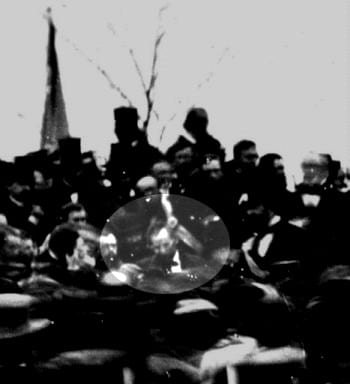Today is the 150th anniversary of the Gettysburg Address. As you may know, Lincoln was not the keynote speaker that day: Edward Everett, an orator from Massachusetts, spoke for more than two hours immediately before Lincoln. This was not unusual for the time, and Everett was considered a great speaker. Yet his involvement in the proceedings has been relegated to a historical footnote while Lincoln’s two-minute speech is an address for the ages.
Why? Everett said it best when he wrote to Lincoln the following day: “I should be glad if I could flatter myself that I came as near to the central idea of the occasion, in two hours, as you did in two minutes.”
If you haven’t read Lincoln’s address in a while, I encourage you to re-read it with fresh eyes. It’s a masterpiece that I’ll leave for rhetorical scholars to analyze. For CEOs, I will simply offer this: Lincoln evoked the credibility, competence and caring (ethos, logos and pathos) that are necessary for any speaker and leader to demonstrate. The speech is a lesson in brevity and use of simple English. No room for jargon, canned phrases, or vague language. Lincoln spoke from the heart and painted a vision and goal for his audience using their past, present and hope for the future.
He was wrong in one respect: Lincoln said in the speech that, “The world will little note, nor long remember what we say here…” Here’s the full text as a reminder of why this 272-word masterwork survives the test of time:
Four score and seven years ago our fathers brought forth on this continent, a new nation, conceived in Liberty, and dedicated to the proposition that all men are created equal.
Now we are engaged in a great civil war, testing whether that nation, or any nation so conceived and so dedicated, can long endure. We are met on a great battlefield of that war. We have come to dedicate a portion of that field, as a final resting place for those who here gave their lives that that nation might live. It is altogether fitting and proper that we should do this.
But, in a larger sense, we cannot dedicate — we cannot consecrate — we cannot hallow — this ground. The brave men, living and dead, who struggled here, have consecrated it, far above our poor power to add or detract. The world will little note, nor long remember what we say here, but it can never forget what they did here. It is for us the living, rather, to be dedicated here to the unfinished work which they who fought here have thus far so nobly advanced. It is rather for us to be here dedicated to the great task remaining before us — that from these honored dead we take increased devotion to that cause for which they gave the last full measure of devotion — that we here highly resolve that these dead shall not have died in vain — that this nation, under God, shall have a new birth of freedom — and that government of the people, by the people, for the people, shall not perish from the earth.
Photo credit: Wikipedia; One of only two known photos of Abraham Lincoln (circled) at Gettysburg





0 Comments